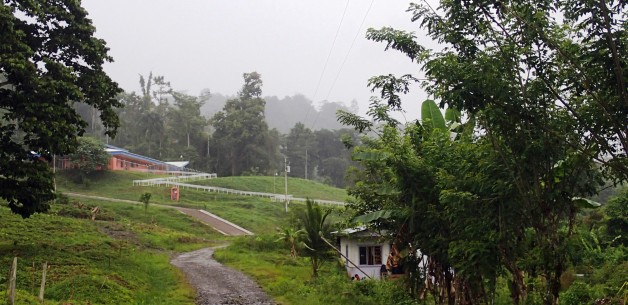This post is also available in: Spanish
On July 3, 2014, twelve organizations representing civil society, indigenous peoples, and local communities of Central America and Mexico sent forest policy recommendations to Juan Jose Bravo Moises, the World Bank Executive Director who represents their countries. Their letter provides input into the three-phase World Bank safeguard policy review formally initiated in October 2012. On July 30th, the World Bank’s Committee on Development Effectiveness (CODE), co-chaired by Mr. Bravo, will vote on the draft of the new safeguard framework. If approved, the safeguard review process will proceed to the second phase, including a second round of in-country consultations. Unfortunately, early indications of the draft’s content suggest a severe weakening of policies protecting forests and natural habitats— which would have dire consequences for both the environment and the people who depend on natural resources for their livelihoods and cultural practices.
In response to the threat of dilution of policies on Forests and Natural Habitats (the new Environmental and Social Standard 6 on Biodiversity), the joint letter submitted by Mesoamerican organizations to Mr. Bravo emphasizes the incredible biological diversity and natural value of their region, which provides ecosystem services enjoyed by the entire world, is the backbone of the cultural diversity of the region, and supports many forest-dependent and impoverished people. Unfortunately, Central American forests face major threats from numerous sectors, including mining and hydrocarbons, with an annual deforestation rate of 1.23%. The letter asserts that the World Bank’s twin goals of eliminating extreme poverty and shared prosperity can only be achieved with strong policies that protect natural environments and the people who depend upon them. The signatories of the letter proceed to make numerous specific policy recommendations for the World Bank, including:
• Expand the scope of the safeguard review to include Development Policy Lending (DPLs)
• Require upstream planning to facilitate effective management of natural resources
• Update and broaden the definition of “critical natural habitats” and “critical forests” to include areas of high environmental and cultural value
• Prohibit conversion and degradation of critical natural habitats and critical forests
• Promote an intersectoral approach to conservation and management of natural resources, including consideration of indirect and supply chain impacts for projects in all sectors
• Refer to the Cancun Safeguards of the United Nations Framework Convention on Climate Change (UNFCCC) as an example of policies that call for no conversion of natural forests and for respect for the rights and knowledge of indigenous peoples and local communities
The following organizations endorsed and jointly sent the letter to Mr. Bravo’s office:
• Alianza Mesoamericana de Pueblos y Bosques (AMPB)- Costa Rica, Guatemala,
• Honduras, Nicaragua, Panamá y México
• Alianza Sustentabilidad Ecológica y Justicia Social (AlianzaVerde) – Honduras
• AMBIO- México
• La Confederación de Pueblos Autóctonos de Honduras (CONPAH)- Honduras
• El Centro para la Autonomía y Desarrollo de los Pueblos Indígenas (CADPI)- Nicaragua
• Consejo Civil Mexicano para la Silvicultura Sostenible- México
• Centro Mexicano de Derecho Ambiental (CEMDA)- México
• Nación Tawahka- Honduras
• Programa Salvadoreño de Investigación sobre el Desarrollo y Medio Ambiente (PRISMA)- El Salvador
• Red Indígena de Turismo de Mexico (RITA)- México
• Red Mexicana de Organizaciones Campesinas Forestales (Red MOCAF)- México
• Ut’z Che’, Asociación de forestaría comunitaria de Guatemala- Guatemala
Read the letter in Spanish

